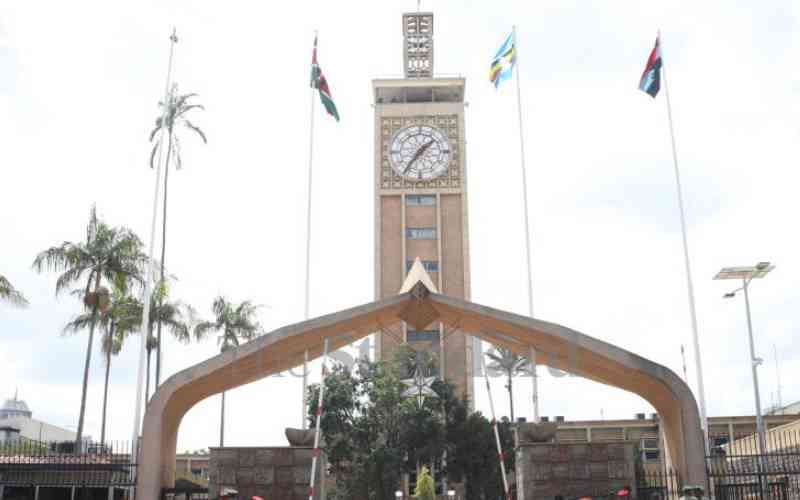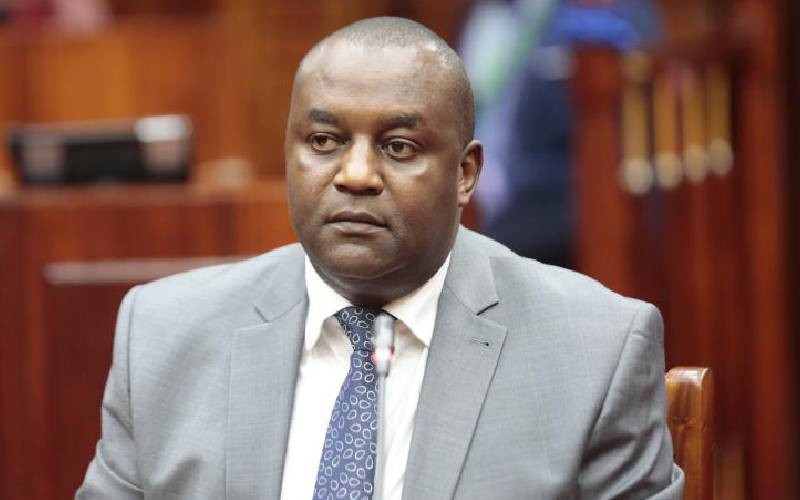NAIROBI: Stakeholders have poked holes in the controversial Kenya Defence Forces (KDF) Bill, 2015, claiming that some of its provisions could be prejudicial to soldiers.
Among those who have raised concern with the bill are retired military officers, who last week told a key parliamentary committee that the offending clauses in the bill may negatively impact the morale of junior servicemen and servicewomen.
Among the contentious clauses is one that gives overriding powers to a court martial to try military personnel, although Parliament is yet to enact a Court Martial Act, in line with Article 169 (2) of the Constitution.
"Parliament shall enact legislation conferring jurisdiction, functions and powers on the courts established under clause 169 (1)," states the provision, which lists Court Martials as one of the subordinate courts alongside the Magistrate's Court and the Kadhi's Court.
"Without an Act, it places the court within the Executive purview, which is an affront to the Constitution," said a retired military officer who appeared before the National Assembly Defence and Foreign Relations Committee.
"Members of the army are greatly prejudiced by having a standing court which is not impartial. The right to a fair trial cannot be limited in whatever form. The Attorney General needs to draft legislation that would enact the Court Martial Act. As it is, the court martial is unconstitutional," said the officer.
Another clause giving the President powers to extend the term of senior military officers was also criticised for putting at risk the career progression of junior officers eager for promotions within the military.
"The President may, on the recommendation of the Defence Council, extend the term of office of the chief of defence forces, the vice-chief of the defence forces or the service commanders for a period not extending one year," says clause 11 of the bill.
Stakeholders who gave their memorandums to the committee included the Kenya National Commission on Human Rights Commission (KNCHR), the Independent Medico-Legal Unit and Transparency International.
Initial opposition to the bill bordered on provisions that would allow the military to play a greater role in civilian affairs.
It proposes to establish an auxiliary unit comprising Kenya Forest Service, the Kenya Wildlife service and the National Youth Service. This provision has raised a storm, with concerns that such an auxiliary force may not be trained on specific responsibilities in dealing with civilians.
KNCHR, in its memorandum to the committee, said such members of the proposed auxiliary unit are not trained in policing and therefore might not be properly grounded in the standards required when policing, especially around unarmed civilians.
The Independent Medico-Legal Unit raised fears that lack of clarity on who between the police and the army should be in charge of joint civilian operations may lead to shirking of responsibility in cases of human rights violations.
The KDF Bill has already been tabled in the House and various amendments are expected to be introduced before it eventually becomes law.
Already, the KDF has presented its memorandum to the committee highlighting its own proposals to the bill.
Stay informed. Subscribe to our newsletter
 The Standard Group Plc is a
multi-media organization with investments in media platforms spanning newspaper
print operations, television, radio broadcasting, digital and online services. The
Standard Group is recognized as a leading multi-media house in Kenya with a key
influence in matters of national and international interest.
The Standard Group Plc is a
multi-media organization with investments in media platforms spanning newspaper
print operations, television, radio broadcasting, digital and online services. The
Standard Group is recognized as a leading multi-media house in Kenya with a key
influence in matters of national and international interest.
 The Standard Group Plc is a
multi-media organization with investments in media platforms spanning newspaper
print operations, television, radio broadcasting, digital and online services. The
Standard Group is recognized as a leading multi-media house in Kenya with a key
influence in matters of national and international interest.
The Standard Group Plc is a
multi-media organization with investments in media platforms spanning newspaper
print operations, television, radio broadcasting, digital and online services. The
Standard Group is recognized as a leading multi-media house in Kenya with a key
influence in matters of national and international interest.








